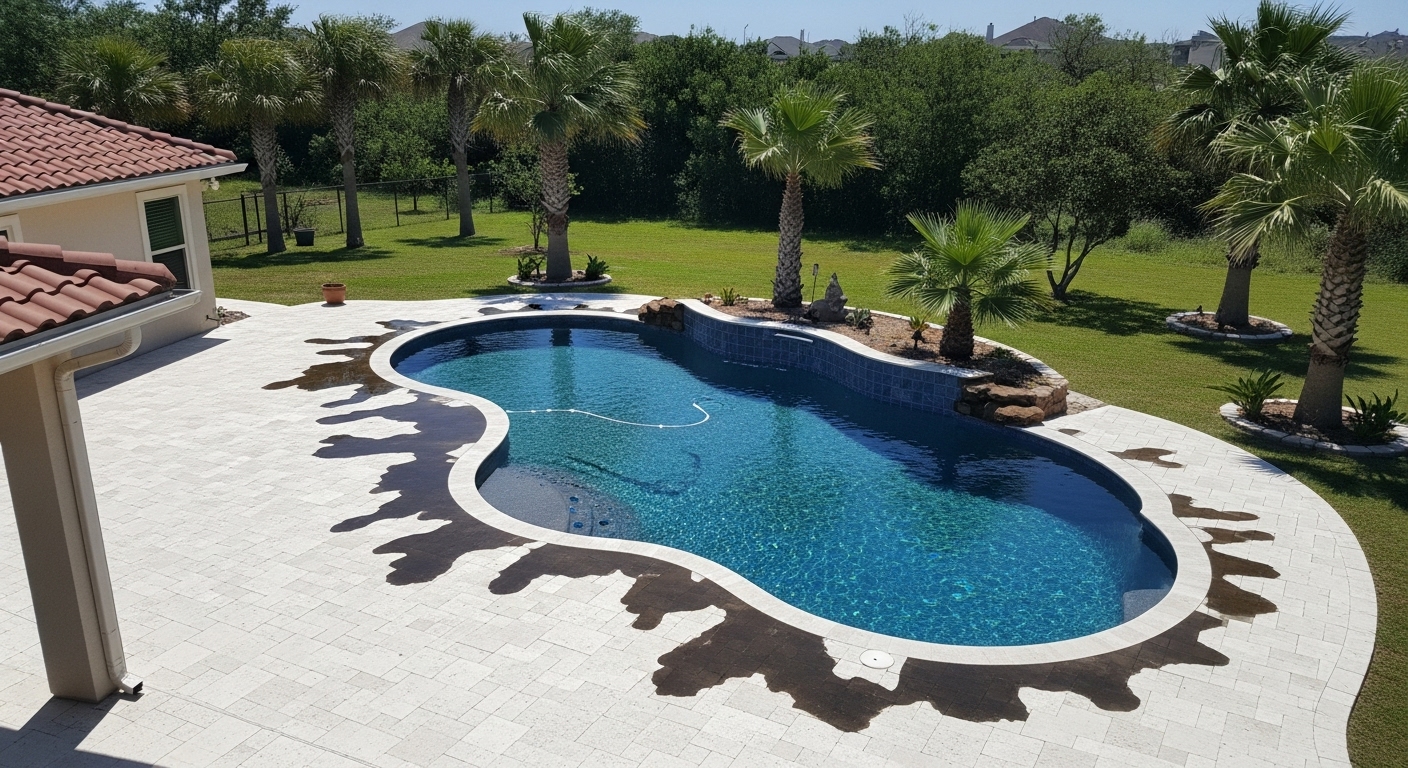Comprehensive Guide to Swimming Pool Leak Detection with Pool RX

The Hidden Dangers of Pool Leaks: Why Early Detection Matters
Swimming pools and spas are a fantastic addition to any property, offering a place to relax, exercise, and entertain. However, maintaining a pool involves more than just regular cleaning and chemical balancing. One of the most critical aspects of pool maintenance is ensuring there are no leaks. Undetected leaks can lead to significant water loss, structural damage, and costly repairs. This article will explore the most common types of hard-to-find pool leaks, including those in bond beam breaks, skimmers, small cracks, and plumbing. We will also discuss how Pool RX, located in Port Aransas and Corpus Christi, Texas, uses specialized equipment to detect and repair these leaks efficiently.
The Importance of Professional Swimming Pool Leak Detection
Identifying and addressing pool leaks promptly is crucial. Small leaks can quickly escalate, causing significant water loss and damage to the pool's structure. With advanced leak detection technology, Pool RX can accurately locate and repair leaks, ensuring your pool remains in top condition.
Common Types of Pool Leaks

1. What Are Bond Beam Breaks?
Bond beam breaks are structural cracks in the pool’s bond beam, which is the top section of the pool wall that provides structural integrity. These breaks can cause significant water loss and damage if not detected early.
Identifying Bond Beam Breaks
To identify bond beam breaks, look for visible cracks on the pool's surface, especially around the perimeter. These cracks can lead to water seeping out and causing erosion or other structural issues.
Repairing Bond Beam Breaks
Repairing bond beam breaks involves sealing the cracks with specialized materials that restore the pool's structural integrity and prevent further water loss. If the pool is leaking significantly, the bond beam could need to be replaced where the damage is.
2. How to Detect Skimmer Leaks
Skimmers are essential for keeping your pool clean by removing debris. However, they can develop leaks, particularly where the skimmer connects to the pool wall.
Signs of Skimmer Leaks
Common signs of skimmer leaks include water level drops near the skimmer and visible cracks or gaps around the skimmer box.
Repairing Skimmer Leaks
Repairing skimmer leaks typically involves sealing the connection points with waterproof sealant and, if necessary, replacing damaged skimmer parts.
3. Small Cracks in the Pool Structure
Small cracks can occur in various parts of the pool, including the walls and floor. While they might seem minor, they can lead to significant water loss over time.
Identifying Small Cracks
Small cracks can be challenging to spot but look for wet areas around the pool, unexplained water loss, and visible cracks on the pool surface.
Repairing Small Cracks
Repairing small cracks involves using specialized materials and techniques to seal the cracks and restore the pool's surface.
4. Plumbing Leaks in Pool Systems
Plumbing leaks are often the hardest to detect because they can occur far back in the pipe fittings and elbows or underground. These leaks can cause substantial water loss and require professional detection methods.
Detecting Plumbing Leaks
To detect plumbing leaks, Pool RX uses advanced techniques such as pressure testing and electronic leak detection. These methods accurately locate leaks without extensive excavation.
Repairing Plumbing Leaks
Repairing plumbing leaks involves fixing or replacing the damaged pipes and ensuring the plumbing system is watertight and functioning correctly.
Advanced Leak Detection Methods Used by Pool RX

5. What is Dye Testing?
Dye testing involves adding a small amount of dye near suspected leak areas. If there is a leak, the dye will be drawn into the crack, making it visible.
6. How Does Pressure Testing Work?
Pressure testing involves pressurizing the pool’s plumbing system to detect leaks. If the system cannot hold pressure, there is a leak that needs to be identified and repaired. This method can be dangerous, as high pressure can harm people and the pipes.
7. The Role of Electronic Leak Detection
Electronic leak detection uses specialized equipment to detect electrical signals in the water, helping pinpoint the exact location of a leak in both fiberglass and vinyl liner pools.
The Benefits of Hiring Professional Leak Detection Services
8. Why Choose Pool RX?
Pool RX offers professional leak detection services using state-of-the-art equipment. Their team of experts can accurately locate and repair leaks, ensuring your pool remains leak-free.
9. How Can Professional Services Save You Money?
By detecting and repairing leaks early, you can prevent extensive water loss and avoid costly structural repairs. Professional services also ensure the job is done right the first time, saving you time and money in the long run.
10. What to Expect During a Professional Pool Inspection?
During a professional pool inspection, the technicians will thoroughly examine your pool, check for leaks, and provide a detailed report on the condition of your pool and any necessary repairs.
Maintaining a Leak-Free Pool

11. Regular Pool Maintenance Tips
Regular maintenance is crucial for preventing leaks. This includes checking the water level, inspecting the pool surface and equipment, and scheduling professional inspections.
12. How to Conduct a Bucket Test?
A bucket test helps determine if your pool is losing water due to a leak or evaporation. Place a bucket filled with pool water on a pool step and mark the water level inside and outside the bucket. After 24 hours, compare the water levels. If the pool water level drops more than the bucket water level, you likely have a leak.
13. Why is it Important to Monitor Water Levels?
Monitoring water levels can help detect leaks early. Significant water loss can indicate a leak that needs immediate attention.
Conclusion: Ensuring Your Pool Stays Leak-Free
Maintaining a swimming pool requires vigilance and regular maintenance. Leaks, even small ones, can cause significant water loss and structural damage if not addressed promptly. Pool RX, located in Port Aransas and Corpus Christi, Texas, offers professional leak detection and repair services to ensure your pool remains in top condition. By using advanced detection methods and specialized equipment, they can accurately locate and repair even the most challenging leaks. Trust Pool RX to keep your pool leak-free and enjoyable for years to come.
Bullet Point Summary
- Identify Bond Beam Breaks: Look for visible cracks around the pool’s perimeter.
- Skimmer Leaks: Check for water level drops near the skimmer and visible gaps.
- Small Cracks: Look for wet areas around the pool and unexplained water loss.
- Plumbing Leaks: Utilize pressure testing and electronic leak detection.
- Dye Testing: Add dye near suspected leak areas to see if it gets drawn into cracks.
- Professional Services: Hire experts to accurately locate and repair leaks.
- Regular Maintenance: Check water levels, inspect the pool surface, and schedule professional inspections.
By following these guidelines and utilizing professional services like those offered by Pool RX, you can ensure your pool remains a beautiful, leak-free oasis.

Discover More Blog Posts
Explore our collection of informative and engaging blog posts.

How to Maintain a Clean and Healthy Pool

How to Maintain a Clean and Healthy Pool

How to Maintain a Clean and Healthy Pool
Discover Peace of Mind with Our Leak Detection & Inspection Services
Concerned about leaks or the overall health of your pool? Pool RX LLC is your trusted partner for comprehensive leak detection and pool inspection. Our expert team utilizes advanced technology to identify and address issues efficiently, ensuring your pool remains a sanctuary of relaxation and enjoyment. Schedule your service today and swim with confidence, knowing every drop is where it should be.


